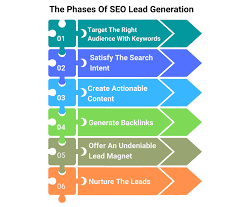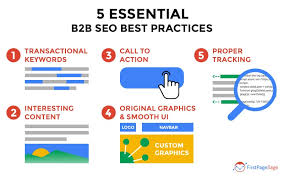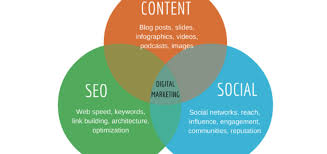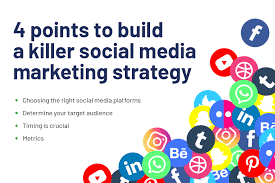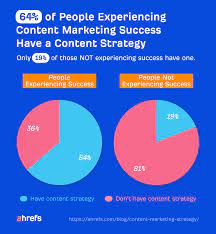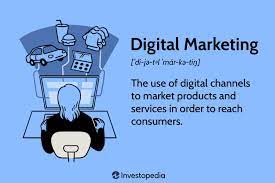Unlocking the Potential: SEO Lead Generation Strategies for Business Growth
The Power of SEO in Lead Generation
Search Engine Optimization (SEO) is not just about improving your website’s visibility on search engines; it is also a powerful tool for generating leads. In today’s competitive digital landscape, businesses are constantly seeking effective strategies to attract and convert potential customers. SEO lead generation has emerged as a crucial component of any successful marketing campaign.
How Does SEO Drive Lead Generation?
SEO focuses on enhancing your website’s ranking in search engine results pages (SERPs) by optimizing various elements such as keywords, meta tags, and content quality. By improving your website’s visibility for relevant search queries, you can attract organic traffic from users actively seeking information or solutions related to your products or services.
When users land on your website through organic search results, they are more likely to be interested in what you offer, making them valuable leads. By providing high-quality content that addresses their needs and concerns, you can engage visitors and encourage them to take desired actions, such as signing up for newsletters, downloading resources, or making purchases.
The Benefits of SEO Lead Generation
One of the key advantages of using SEO for lead generation is its cost-effectiveness compared to traditional advertising methods. With SEO, you can target specific keywords and demographics to reach your ideal audience without incurring hefty advertising costs.
Moreover, SEO lead generation offers long-term benefits by establishing your website as a credible source of information within your industry. As your website gains authority and trust from search engines and users alike, you can enjoy sustained organic traffic and a steady stream of qualified leads over time.
Best Practices for SEO Lead Generation
To maximise the effectiveness of SEO in lead generation, consider implementing the following best practices:
- Keyword Research: Identify relevant keywords with high search volume and low competition to target potential leads effectively.
- Optimised Content: Create informative and engaging content that resonates with your target audience and encourages them to take action.
- User Experience: Ensure that your website is user-friendly, mobile-responsive, and provides a seamless browsing experience for visitors.
- Lead Capture Forms: Include clear calls-to-action and lead capture forms on strategic pages to convert visitors into leads.
- Analyse & Iterate: Monitor key metrics such as traffic sources, conversion rates, and keyword performance to refine your SEO strategy based on data-driven insights.
In Conclusion
SEO lead generation is a valuable asset for businesses looking to attract high-quality leads organically. By leveraging the power of SEO to enhance your online visibility and engage with potential customers effectively, you can drive sustainable growth and achieve long-term success in today’s competitive digital landscape.
21 Key Questions and Answers on SEO Lead Generation for 2022
- What are the 3 approaches of lead generation?
- What are the 3 pillars of SEO?
- What kind of an SEO objective is lead generation?
- Is search engine optimization used for lead generation?
- What are the advantages of SEO for lead generation?
- What are the 3 parts of SEO?
- What are the 3 steps to successful SEO?
- How is SEO generated?
- Does SEO still work in 2022?
- How do I generate leads in off page SEO?
- How do you generate SEO?
- How can I use SEO to grow my business?
- Can SEO Help in lead generation?
- What is an SEO lead?
- What is a lead generation example?
- What is lead generation in SEO?
- Is SEO good for lead generation?
- How do I generate more SEO leads?
- How to use SEO to grow your business?
- Which are the 4 steps of the lead generation process?
- What is SEO lead generation?
What are the 3 approaches of lead generation?
Lead generation in SEO involves various approaches to attract and convert potential customers into valuable leads. The three primary approaches of lead generation encompass inbound marketing, outbound marketing, and content marketing. Inbound marketing focuses on creating valuable and relevant content to attract prospects organically, while outbound marketing involves proactive outreach through channels like email campaigns or cold calling. Content marketing revolves around producing engaging and informative content to educate and engage target audiences, ultimately driving lead generation through valuable interactions and conversions. By strategically combining these approaches, businesses can effectively generate leads and nurture relationships with their target audience in the digital landscape.
What are the 3 pillars of SEO?
In the realm of SEO lead generation, understanding the three fundamental pillars of SEO is crucial for success. The first pillar is on-page optimization, which involves enhancing elements within your website such as content quality, meta tags, and internal linking structure to improve visibility and relevance to search engines. The second pillar is off-page optimization, focusing on building authoritative backlinks from reputable websites to establish credibility and authority for your site. Lastly, technical SEO forms the third pillar, involving aspects like site speed, mobile-friendliness, and structured data markup to ensure optimal performance and user experience. Mastering these three pillars of SEO is essential for driving organic traffic and generating valuable leads for your business.
What kind of an SEO objective is lead generation?
Lead generation is a crucial SEO objective that focuses on attracting and converting potential customers through organic search traffic. By optimising your website for relevant keywords and creating high-quality content that resonates with your target audience, you can drive qualified leads to your site. SEO lead generation aims to not only increase your website’s visibility in search engine results but also to engage visitors and encourage them to take desired actions, such as signing up for newsletters, requesting quotes, or making purchases. Ultimately, the goal of lead generation through SEO is to establish a sustainable pipeline of valuable leads that can contribute to the growth and success of your business.
Is search engine optimization used for lead generation?
Search engine optimization (SEO) plays a crucial role in lead generation by enhancing a website’s visibility on search engines and attracting organic traffic from users actively seeking relevant information or solutions. Through strategic keyword targeting, content optimisation, and user experience improvements, SEO helps businesses generate valuable leads by connecting with their target audience at the right moment. By leveraging SEO techniques effectively, businesses can establish credibility, drive organic traffic, and convert visitors into qualified leads, making search engine optimization an indispensable tool for successful lead generation strategies.
What are the advantages of SEO for lead generation?
One of the frequently asked questions regarding SEO lead generation is, “What are the advantages of SEO for lead generation?” SEO offers a multitude of benefits for lead generation, including cost-effectiveness, targeted reach, and long-term sustainability. By optimising your website for search engines, you can attract organic traffic from users actively seeking your products or services. This targeted approach ensures that the leads generated through SEO are more likely to convert into customers. Additionally, SEO establishes your website as a credible source within your industry, building trust with both search engines and users over time. Ultimately, leveraging SEO for lead generation not only drives quality leads but also provides lasting benefits for your business’s online visibility and growth.
What are the 3 parts of SEO?
In the realm of SEO, the three fundamental components that form the backbone of any successful strategy are on-page SEO, off-page SEO, and technical SEO. On-page SEO involves optimising individual web pages to improve their search engine rankings by focusing on elements such as content quality, keyword usage, and meta tags. Off-page SEO, on the other hand, revolves around building external links and enhancing your website’s authority through strategies like link building and social media marketing. Lastly, technical SEO deals with the backend aspects of your website, ensuring that it is optimised for search engine crawling and indexing by addressing issues such as site speed, mobile-friendliness, and structured data markup. Mastering these three core aspects of SEO is essential for maximising your online visibility and driving successful lead generation efforts.
What are the 3 steps to successful SEO?
Achieving successful SEO involves a strategic approach that encompasses three key steps. Firstly, conducting comprehensive keyword research to identify relevant search terms that align with your target audience’s intent is crucial. Next, optimising on-page elements such as meta tags, headings, and content to ensure they are search engine-friendly plays a vital role in improving your website’s visibility. Lastly, building high-quality backlinks from reputable sources to establish authority and credibility within your industry is essential for long-term SEO success. By following these three fundamental steps diligently, businesses can enhance their online presence and drive sustainable organic traffic growth.
How is SEO generated?
SEO lead generation is generated through a strategic approach to Search Engine Optimization (SEO) techniques that aim to improve a website’s visibility and ranking on search engine results pages. By implementing best practices such as keyword research, content optimisation, and user experience enhancements, businesses can attract organic traffic from users actively searching for relevant products or services. SEO-generated leads are valuable as they represent potential customers who have shown genuine interest in what the business has to offer, making them more likely to convert into loyal clients.
Does SEO still work in 2022?
In 2022, the effectiveness of SEO in lead generation remains as crucial as ever. Despite evolving search engine algorithms and changing digital trends, SEO continues to be a powerful strategy for driving organic traffic and generating valuable leads. Businesses that invest in SEO efforts tailored to current best practices and user intent can still achieve significant results in terms of improved visibility, higher search engine rankings, and increased website traffic. By adapting to the latest SEO techniques and focusing on providing high-quality content that resonates with target audiences, organisations can harness the enduring power of SEO to attract qualified leads and enhance their online presence in 2022.
How do I generate leads in off page SEO?
In off-page SEO, generating leads involves leveraging external factors to enhance your website’s visibility and credibility. One effective strategy is to focus on building high-quality backlinks from reputable websites in your industry. By establishing strong connections with authoritative sources through guest blogging, content partnerships, or social media engagement, you can drive targeted traffic to your website and attract potential leads. Additionally, participating in online communities, forums, and industry events can help you expand your network and reach a wider audience interested in your products or services. Off-page SEO lead generation requires a proactive approach to building relationships and promoting your brand across various online platforms to maximise lead generation opportunities.
How do you generate SEO?
To generate SEO effectively for lead generation, it is essential to focus on implementing strategic search engine optimisation techniques across various aspects of your online presence. This includes conducting thorough keyword research to target relevant search terms, creating high-quality and engaging content that resonates with your target audience, optimising on-page elements such as meta tags and headings, building quality backlinks from reputable sources, and ensuring a user-friendly website experience. By following best practices and staying abreast of algorithm updates, businesses can enhance their SEO efforts to attract organic traffic and convert visitors into valuable leads.
How can I use SEO to grow my business?
To utilise SEO effectively in growing your business, it is essential to focus on strategic keyword research, on-page optimisation, and content creation. By identifying relevant keywords that align with your target audience’s search intent and incorporating them naturally into your website’s content, meta tags, and headings, you can improve your visibility in search engine results pages (SERPs). Additionally, creating high-quality, informative content that addresses the needs and interests of your potential customers not only attracts organic traffic but also establishes your brand as a trusted authority in your industry. Consistent monitoring of performance metrics and adapting your SEO strategy based on data-driven insights is key to sustaining growth and maximising the impact of SEO on your business success.
Can SEO Help in lead generation?
Many businesses often wonder, “Can SEO help in lead generation?” The answer is a resounding yes. SEO plays a pivotal role in lead generation by improving a website’s visibility on search engines and attracting organic traffic from users actively seeking products or services. By optimising various elements such as keywords, meta tags, and content quality, businesses can reach their target audience effectively and convert visitors into valuable leads. SEO not only drives organic traffic but also establishes credibility and trust, leading to sustained lead generation results over time.
What is an SEO lead?
An SEO lead refers to a potential customer or prospect who discovers a business through organic search engine results due to effective Search Engine Optimization (SEO) strategies. When a user conducts a search query related to the products or services offered by a business, and the business’s website appears prominently in search engine results pages (SERPs), it has the opportunity to attract relevant traffic and generate leads. An SEO lead is considered valuable as they have actively shown interest in the business by seeking information online, making them more likely to engage with the website’s content and potentially convert into a customer.
What is a lead generation example?
A common example of lead generation is when a website visitor fills out a contact form to download a free e-book or subscribe to a newsletter. In this scenario, the visitor becomes a lead by providing their contact information in exchange for valuable content. The website owner can then follow up with the lead through email marketing or other communication channels to nurture the relationship and guide them towards making a purchase decision. Lead generation examples like this demonstrate how businesses can attract potential customers and convert them into loyal clients through strategic marketing tactics.
What is lead generation in SEO?
Lead generation in SEO refers to the process of attracting and capturing potential customers through organic search engine optimisation strategies. In essence, it involves leveraging SEO techniques to drive relevant traffic to a website and convert visitors into leads. By optimising various elements such as keywords, content quality, and user experience, businesses can enhance their online visibility and attract individuals who are actively searching for products or services related to their offerings. Ultimately, lead generation in SEO aims to generate valuable leads that have a genuine interest in a company’s products or services, leading to increased conversions and business growth.
Is SEO good for lead generation?
When it comes to lead generation, SEO plays a pivotal role in driving valuable traffic to your website and converting visitors into potential leads. SEO is not just good but essential for lead generation as it helps improve your website’s visibility on search engines, making it easier for users actively seeking your products or services to find you. By optimising your website with relevant keywords, high-quality content, and user-friendly design, SEO enables you to attract qualified leads who are more likely to engage with your brand and take desired actions. In essence, investing in SEO for lead generation can yield long-term benefits by establishing your online presence and driving sustainable growth for your business.
How do I generate more SEO leads?
To generate more SEO leads, businesses can implement a comprehensive strategy that focuses on enhancing their online visibility and attracting qualified prospects. Key tactics include conducting thorough keyword research to target relevant search terms, creating high-quality content that resonates with the target audience, optimising website performance for search engines, and implementing lead capture forms strategically. By consistently monitoring and analysing key metrics, such as traffic sources and conversion rates, businesses can refine their SEO approach to attract more leads effectively. Additionally, engaging in social media marketing, email campaigns, and networking within the industry can further boost lead generation efforts and drive sustainable growth for the business.
How to use SEO to grow your business?
Utilising SEO to grow your business involves implementing strategic tactics to enhance your online visibility and attract potential customers. By conducting thorough keyword research, optimising your website’s content and structure, and building high-quality backlinks, you can improve your search engine rankings and drive organic traffic to your site. Engaging with your target audience through valuable and relevant content, as well as providing a seamless user experience, are essential components of using SEO effectively for business growth. Regularly monitoring and analysing key metrics allows you to refine your SEO strategy and adapt to changing market dynamics, ultimately leading to increased brand awareness, customer engagement, and revenue generation.
Which are the 4 steps of the lead generation process?
In the realm of SEO lead generation, understanding the fundamental steps of the lead generation process is crucial for achieving success. The four key steps involved in lead generation include identification, attraction, conversion, and nurturing. Firstly, identification entails defining and targeting your ideal audience through market research and segmentation. Next, attraction involves capturing the attention of potential leads through compelling content and effective SEO strategies. Conversion focuses on converting leads into customers by guiding them through the sales funnel with persuasive calls-to-action and landing pages. Finally, nurturing involves building relationships with leads over time through personalised communication and tailored marketing efforts to foster trust and loyalty. By following these four essential steps diligently, businesses can optimise their lead generation efforts and drive sustainable growth in the digital landscape.
What is SEO lead generation?
SEO lead generation refers to the process of using Search Engine Optimization techniques to attract and convert potential customers into leads. By optimising a website’s visibility on search engines through strategic keyword targeting, content creation, and technical enhancements, businesses can drive organic traffic from users actively seeking their products or services. SEO lead generation focuses on engaging with these visitors through valuable content and compelling calls-to-action, ultimately guiding them towards taking desired actions such as signing up for newsletters, requesting quotes, or making purchases. Essentially, SEO lead generation harnesses the power of organic search traffic to generate high-quality leads that have a genuine interest in what a business has to offer.
